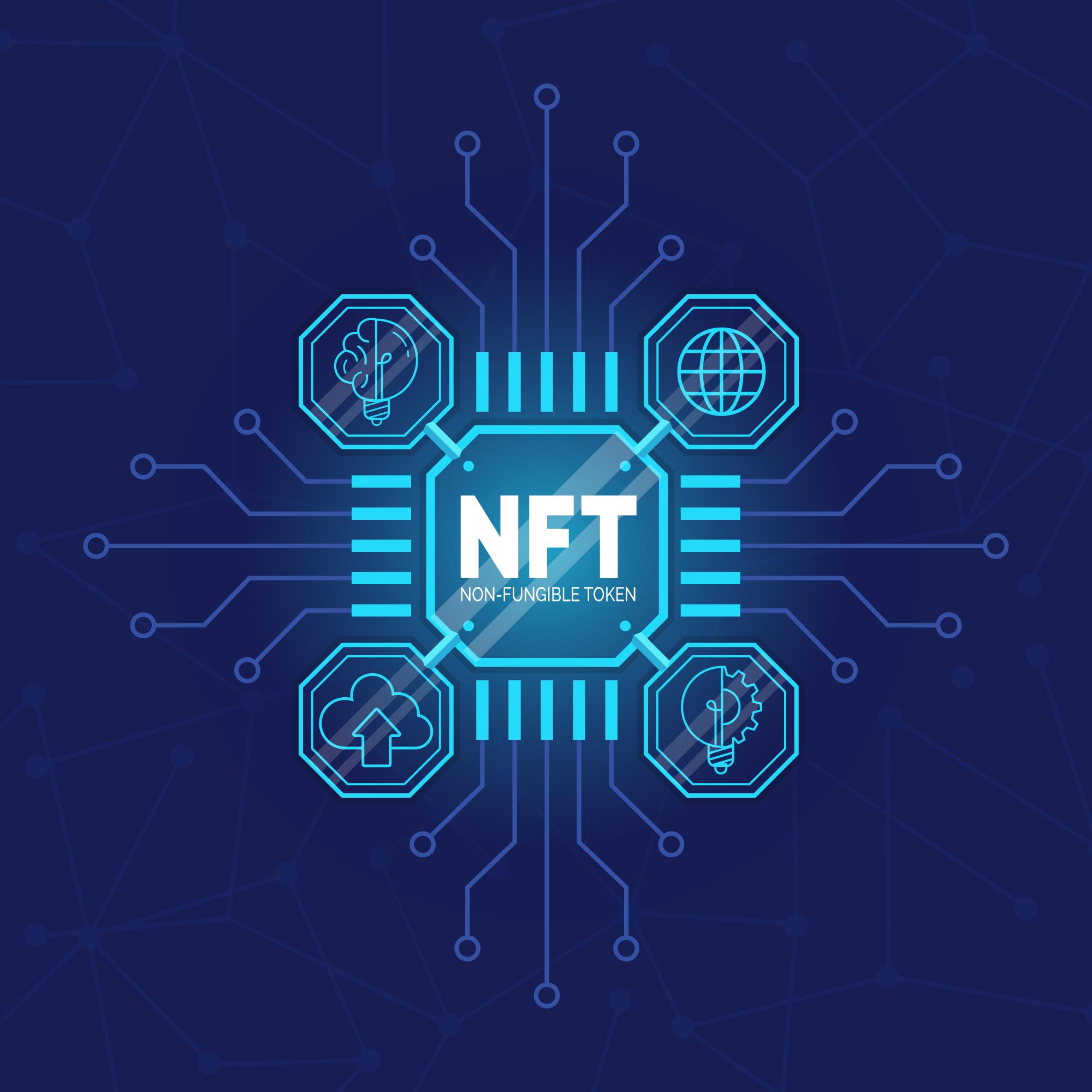The rise of blockchain technology has brought with it a surge in crypto and NFTs: the legal challenges of digital assets. Digital assets, especially those connected to cryptocurrencies and non-fungible tokens (NFTs), are disrupting traditional law frameworks. With opportunities come risks. In crypto and NFTs: the legal challenges of digital assets, issues like ownership, regulation, intellectual property, taxation, fraud, jurisdiction, and rights attached to tokens are emerging. Understanding these challenges is essential for creators, investors, and legal professionals alike.
Understanding Crypto, NFTs, and Digital Assets
Before exploring crypto and NFTs: the legal challenges of digital assets, it’s important to define key terms.
- Crypto refers to cryptocurrencies, tokens, and coins – digital forms of value built on blockchain.
- NFTs are non-fungible tokens: each NFT is (usually) unique, non-interchangeable, representing ownership of some digital or physical asset, or rights in the real or virtual world.
- Digital assets is a broad term that covers crypto, NFTs, tokens, and sometimes data or rights stored digitally.
When we speak of crypto and NFTs: the legal challenges of digital assets, we are looking at how existing laws (intellectual property, securities, consumer law, contract law, tax law) apply (or struggle to apply) to these new digital forms.
Key Legal Challenges in Crypto and NFTs: The Legal Challenges of Digital Assets
Here are the major areas where crypto and NFTs: the legal challenges of digital assets are most visible, along with examples of how they manifest.
Intellectual Property & Ownership Ambiguity
One of the central issues in crypto and NFTs: the legal challenges of digital assets is that owning an NFT does not automatically mean owning the copyright or all rights to the underlying work. The NFT buyer may have ownership of the token, but unless the intellectual property rights are explicitly transferred, the creator often retains reproduction, adaptation, or public display rights.
This ambiguity creates disputes over what rights NFT holders actually have. If you think you are purchasing rights but only get a token with limited usage rights, you may be vulnerable.
Regulatory Uncertainty & Classification
In crypto and NFTs: the legal challenges of digital assets, one big problem is classification: is a given NFT a security, a commodity, or something else? For example, some NFTs might be considered securities under certain jurisdictions if they satisfy tests like the Howey test. If they are securities, they must follow securities regulation, which many NFT issuers do not.
Similarly, crypto tokens and other digital assets are treated differently in different countries. What counts as property in one place might be regulated as a financial instrument in another. This lack of uniformity is a major part of crypto and NFTs: the legal challenges of digital assets.
Taxation Issues
Taxes are another prominent challenge in crypto and NFTs: the legal challenges of digital assets. How do you treat income from sales of NFTs? Is it capital gains, business income, or something else? What about VAT/GST or equivalent? Cross-border NFT sales further complicate matters. In India, for example, revenue from NFT sales is considered digital asset income and may attract various taxes.
Failing to understand tax obligations can lead to penalties, unexpected liabilities, or legal risk.
Smart Contracts & Contractual Ambiguity
Smart contracts underlie many crypto and NFTs: the legal challenges of digital assets. They are intended to automate certain terms of sale, royalties, or ownership. But:
- Smart contracts may be flawed or have bugs, resulting in unintended behavior.
- The legal enforceability of smart contracts is sometimes unclear: who is liable when something goes wrong?
- Smart contracts might not fully capture all legal obligations (privacy protections, consumer rights, intellectual property rights).
Consumer Protection & Fraud Risk
Consumers or collectors of NFTs face risks in crypto and NFTs: the legal challenges of digital assets. Examples include misrepresentation (e.g. making false promises about utility or value), “rug pulls” (projects that vanish after raising funds), copyright infringement, or fake NFTs.
Platforms may lack transparency, or terms may be vague. Buyers may not know what rights they truly have.
Jurisdiction, Cross-Border Challenges & Enforcement
Since crypto and NFTs: the legal challenges of digital assets are often global, with creators, buyers, and platforms in different countries, jurisdiction presents a headache. Which court has authority? Which law applies? Enforcement of a court order may be difficult if the other party resides in another country. Moreover, digital assets are borderless; if a server or wallet is in a different jurisdiction, laws may conflict.
Privacy, Data Protection & Security
Digital transactions leave traces. Blockchain’s transparency is a strength, but also a risk. In crypto and NFTs: the legal challenges of digital assets, the issue of personal data privacy arises. If metadata or transactional data reveals private information, or if wallet addresses can be linked back to an individual, there are risks under data protection laws (like GDPR in Europe, or similar laws elsewhere).
Security is another facet: theft of private keys, hacks of platforms, or loss of access can destroy value.
Insolvency, Bankruptcy & Asset Recovery
When platforms, projects, or companies involved in NFTs or crypto collapse, digital assets pose special difficulties in insolvency. How are digital assets treated under bankruptcy law? Are they property? Who has priority? How to recover tokens or NFTs when platforms go bankrupt or disappear? These questions are central to crypto and NFTs: the legal challenges of digital assets.
How to Mitigate These Legal Challenges
Knowing the risks is half the battle. Here are strategies for dealing with crypto and NFTs: the legal challenges of digital assets:
- Clear Licensing & Rights Contracts
Always have a written contract that spells out what rights transfer when selling NFTs: copyrights, reproduction, commercial rights, etc. Sellers should clarify whether the NFT buyer gets only the token or the underlying IP. - Legal Classification Advice
Consult lawyers to determine whether a project involves securities law, commodity law, or other financial legal regimes. This helps ensure compliance with registration, disclosures, or regulatory filings. - Transparent Terms & Consumer Disclosures
Provide clear, easy-to-understand terms of sale, including what rights the buyer has, what happens in fraud or loss, what smart contract requirements are, how royalties are handled, etc. - Tax Planning & Compliance
Engage tax professionals experienced in digital assets. Keep accurate records of transactions, values at time of sale, cost, and treat international transactions carefully. - Use Robust Smart Contracts & Audits
Before deploying a smart contract for NFTs, conduct security audits. Ensure that roles (creator, owner, licensee) are clearly defined. Include fallback or dispute resolution mechanisms. - Data Protection & Privacy Safeguards
Minimize personal data on‐chain. Use privacy-friendly wallet or metadata structures. Comply with applicable data laws. - Insurance & Risk Management
Consider insurance for digital asset theft or platform failures. Also, ensure platform terms cover what happens in insolvency or if the platform is hacked. - Jurisdiction & Choice of Law Clauses
Include on-platform or in contract terms a clear choice of law and jurisdiction. This helps reduce uncertainty and increases enforceability. - Stay Updated with Regulations
Laws are evolving fast in this area. Keep track of proposed laws (e.g. in India, EU, U.S.), regulatory guidance, court decisions, and adapt your practices accordingly. - Engage Legal Professionals Early
When launching an NFT project or dealing heavily in crypto assets, getting legal advice from the start on all of the above areas is usually cheaper than dealing with disputes or penalties later.
Case Examples and Recent Developments
- In India, crypto and NFTs: the legal challenges of digital assets include ambiguous regulation of NFTs, lack of specific laws, and challenges under tax law and consumer protection laws.
- There has been litigation in the U.S. where NFT creators sued authorities like the SEC over regulatory uncertainty.
Trademark cases (e.g., brand-owners suing over NFT designs infringing trademarks) demonstrate intellectual property issues in crypto and NFTs: the legal challenges of digital assets.
Conclusion
Crypto and NFTs: the legal challenges of digital assets are multifaceted. From intellectual property confusion to regulatory gaps, from tax complexity to jurisdiction problems, the legal landscape is still catching up to innovation. But with careful planning, strong contracts, transparency, and professional advice, creators, buyers, and platforms can navigate these waters more safely.
As digital assets gain even greater prominence, staying informed is not optional it’s essential. The future of crypto and NFTs will depend heavily on legal clarity, credible frameworks, and respect for rights.

Frequently Asked Questions.
No. Buying an NFT often means owning the token but not necessarily owning the copyright or all licensing rights to the underlying work. These rights must be explicitly transferred via agreement.
Yes. Depending on how an NFT project is structured (promises of profit, investment contracts, etc.), regulators might deem some NFTs as securities, which brings extra legal obligations.
They may be taxed as capital gains, business income, or under other categories depending on local laws. Also, there may be GST, VAT, or other transaction taxes. It depends on jurisdiction.
Smart contract vulnerabilities are a big part of crypto and NFTs: the legal challenges of digital assets. Using audited contracts, fallback mechanisms, and insurance can help, but legal recourse may still be complicated.
Liability depends on many factors including jurisdiction, contract terms, whether the platform facilitated the fraud, whether disclosures were made, etc. Both creators and platforms may have exposure.
It depends on where you, the buyer/seller, and the platform are located. Common laws include intellectual property law, securities law, consumer protection, tax law, contract law, and data protection/privacy law.
